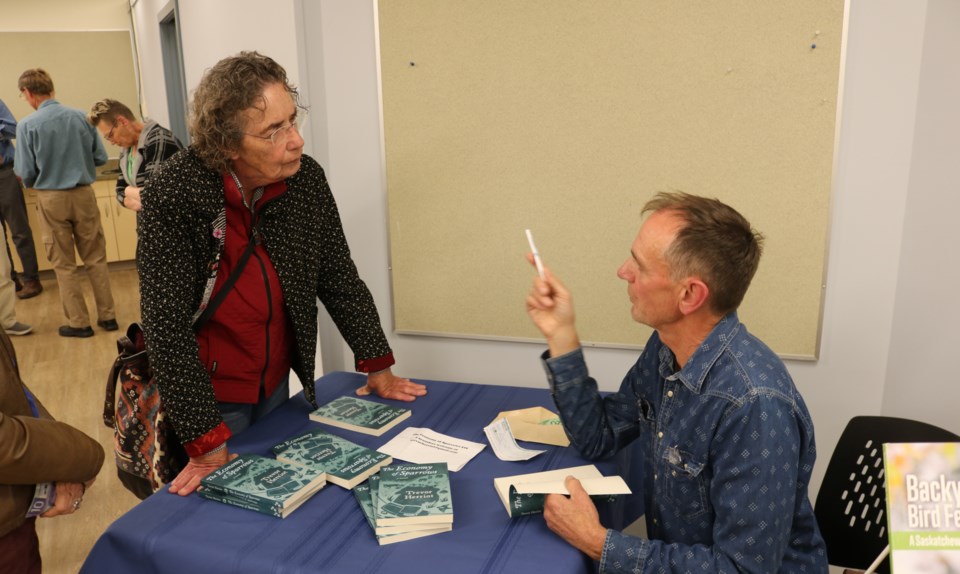YORKTON - Trevor Herriot is a noted naturalist in Saskatchewan with a number of books to his credit which reflect the diversity and importance of the natural world in our province.
Herriot was in Yorkton recently reading from his first fiction work; The Economy of Sparrows, presented by the Yellowhead Nature Society in partnership with the Yorkton Public Library.
The book is a fine read – I had access to a review copy – but while the story was a good one, the questions raised might be the most important aspect of the work.
While fiction, Herriot makes a rather clear statement that when it comes to bird populations, the general trend on the Prairies is less feathered friends than in the past. That said he also makes it pretty clear hard data on population numbers is sparse, without a baseline it’s too easy to just see the existing population of a time as being normal – even if greatly reduced from the past.
So what has birds to do with agriculture?
Well, on one level some wildlife is actually positive for farmers.
Herriot starts each chapter in his latest book with a snippet from Taverner’s Birds of Western Canada where Taverner details how species such as the redpoll linnet consume huge quantities of weed seeds. An eaten weed seed is one less to sprout and grow in a crop.
And of course the book also notes the agriculture has had a role in the reduced numbers of many bird species.
The drainage of sloughs and removal of bluffs to increase cultivatable acres has to have hurt birds in terms of lost habitat.
But an acre of land growing a 40 bushel canola crop at $20 a bushel, and wildlife is going to lose out.
And, of course the impact of pesticides and herbicides exist too, although to exactly what extent may be argued. There is of course a level of irony in the thought pesticide to kill weeds may well be reducing populations of bird species that would be eating the seed of the offending weeds.
Of course a broader question is does wildlife matter? If whitetail deer and sparrows disappeared would it change our world in a significant way?
The passenger pigeon and dodo and countless other species have gone extinct and the ripple was negligible.
And, therein lies the issue for wildlife. Most of us want to see deer on occasion until one happens to run in front of car and we get the repair bill, then we care less.
Birds are nice until they poop on the car.
Bees are great until they sting.
Then does wildlife matter?
Short answer – sure it does.
The tougher answer is to quantifying why it matters.
At least Herriot’s newest book will have you thinking about the why.






